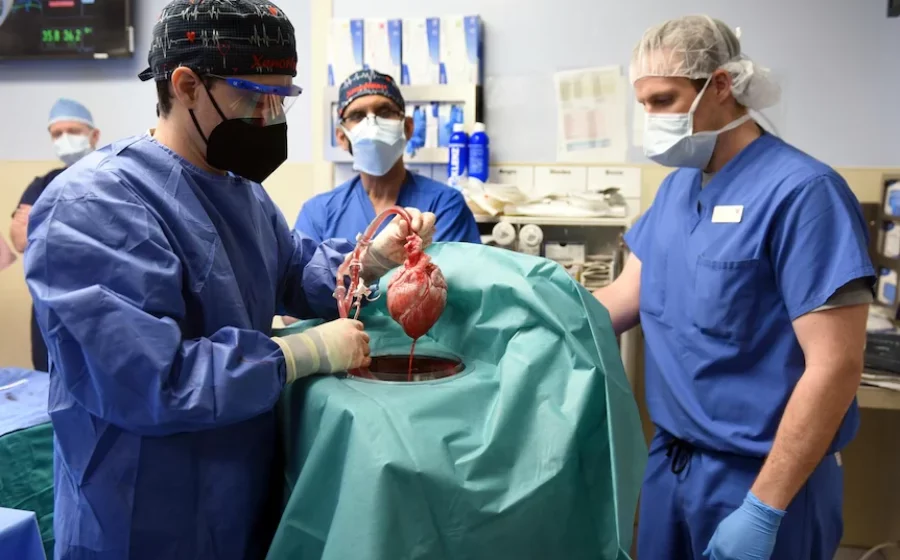A 57-year-old man with terminal heart disease who made history as the first person to receive a genetically modified pig’s heart has died in hospital.
US man David Bennett received the transplant on January 7 at the University of Maryland Medical Center (UMMC).
His condition began deteriorating several days ago, the hospital said in a statement on Wednesday, adding that Mr Bennett was given “compassionate palliative care” after it became clear that he would not recover.
Doctors didn’t give an exact cause of death.
Mr Bennett was able to communicate with his family during his final hours, the hospital said.
Mr Bennett’s son praised the hospital for offering the last-ditch experiment, saying the family hoped it would help further efforts to end an organ shortage.
“We are grateful for every innovative moment, every crazy dream, every sleepless night that went into this historic effort,” David Bennett Jr said in a statement released by UMMC.
“We hope this story can be the beginning of hope and not the end.”
Mr Bennett, a handyman from Hagerstown, Maryland, first came to UMMC as a patient in October and was placed on a heart-lung bypass machine to keep him alive, but he was deemed ineligible for a conventional heart transplant.
After Mr Bennett was implanted with a pig heart that had been genetically modified to prevent rejection in a first-of-its-kind surgery, his son called the procedure “a miracle.”
The surgery, performed by a team at the hospital, was among the first to demonstrate the feasibility of a pig-to-human heart transplant, a field made possible by new gene editing tools.
For Mr Bennett, the procedure was his last option.
“Before consenting to receive the transplant, Mr Bennett was fully informed of the procedure’s risks, and that the procedure was experimental with unknown risks and benefits,” the hospital said.
On December 31, the US Food and Drug Administration granted an emergency authorisation for the surgery in the hope of saving his life.
The transplanted heart performed “very well for several weeks without any signs of rejection,” the hospital said on Wednesday.
Doctors for decades have sought to one day use animal organs for life-saving transplants and pigs have long been considered a potential source because their organs are so similar to humans.
Prior efforts at pig-to-human transplants had failed because of genetic differences that caused organ rejection or viruses that posed an infection risk.



